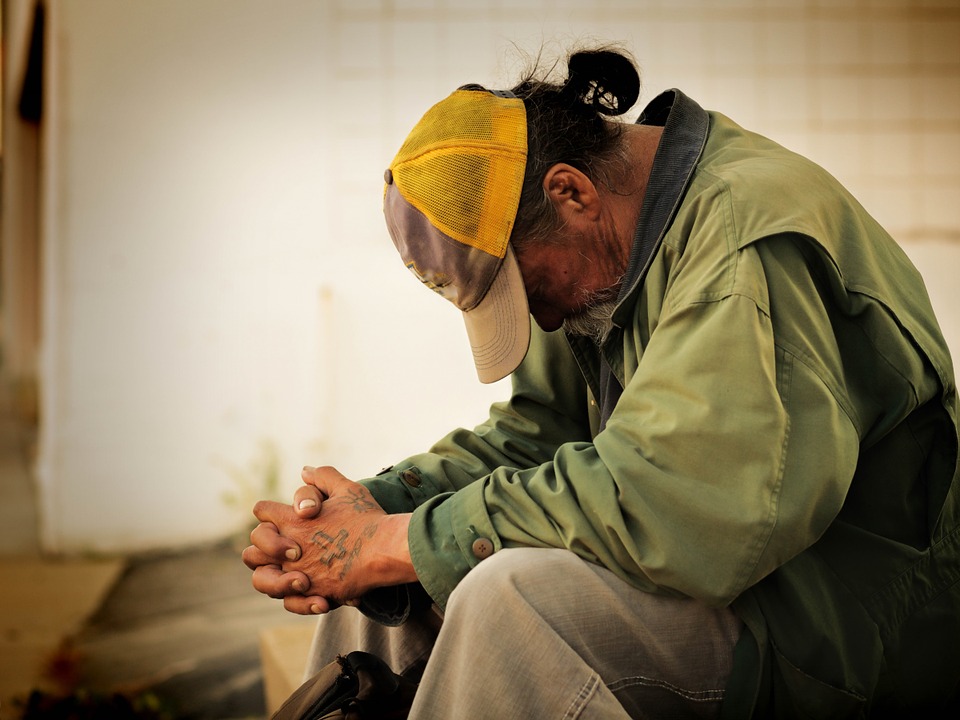Love Your Neighbor: Restoring Dignity, Breaking the Cycle of Poverty, by Kathryn Feliciano. Mclean, VA: Institute for Faith, Work & Economics, 2016. 53 pages.
Poverty surrounds us. It occurs on a massive scale – everywhere from down the street to across the globe. Jesus’ adage, “For you always have the poor with you” (Mark 14:7, Matthew 26:11, ESV), still rings true. As Christians, many of us continue giving of our time and money, but the poor weigh heavily on our hearts as we contemplate how we can help facilitate permanent change. Kathryn Feliciano tackles this challenging topic in Love Your Neighbor: Restoring Dignity, Breaking the Cycle of Poverty, a booklet recently published by the Institute for Faith, Work & Economics (IFWE).
Feliciano, ministry coordinator at Restoration Church in Washington D.C. and former manager of academic initiatives at IFWE, consolidates some of the best Christian thinking about addressing poverty into about fifty pages in the concisely written Love Your Neighbor. She follows in the intellectual footsteps of For the Least of These, When Helping Hurts, Toxic Charity, and Poverty, Inc., in questioning the efficacy of prevailing norms within the charity industry. But she also presents a positive vision for how Christians can effectively fight poverty and promote human flourishing.
With more than $500 billion of charitable giving every year in the United States, the issue clearly lays elsewhere than Americans’ generosity. While charitable handouts and economic aid serve as helpful responses to immediate short-term crises, overreliance on these tactics only perpetuates structural poverty. Instead, Feliciano promotes an approach to economic development explicitly informed by Christian truth.
“The world is ravaged by poverty and the way we strive to fight poverty isn’t working,” Feliciano writes. “Our goal is flourishing, and the means to achieve this goal is true gospel-centered love for the poor.”
Feliciano argues for a dual-pronged strategy of preaching the gospel and emphasizing long-term development that promotes self-sustainability and self-respect for the poor. Integrating Christian truths into anti-poverty efforts – such as humans bearing inherent dignity as God’s image bearers – runs against the grain of contemporary secularized economic development. But Feliciano defends exactly this strategy in Love Your Neighbor.
Christian solutions to poverty fill a void left by secular efforts. Feliciano posits that without Christian truth or humility, efforts often “fail to account for people’s dignity and their gifts and talents.” So too by not preaching the Gospel, secular endeavors overlook a vital source of power for positive change.
“Coupled with the saving grace of Jesus Christ, which causes dramatic change in people’s lives, poverty efforts will be far more effective,” Feliciano writes.
Feliciano clarifies that poverty encompasses more than simply a “lack of money.” In addition to the psychological and spiritual burden of poverty, the poor often suffer from “social poverty” – a lack of opportunities, support systems, and interpersonal connections – which “exacerbates material poverty.” Viewing poverty holistically as a compendium of interconnected issues ensures that Christians promote flourishing for the entire person rather than only providing for their physical needs.
“Whereas charity only works to alleviate the poor’s material poverty, to truly be effective, we must consider all aspects of poverty, the material and the social, spiritual, and psychological,” Feliciano writes.
In the second half of Love Your Neighbor, Feliciano delves into the practical ways of tackling poverty in healthy ways. She spends one chapter on case studies of three specific organizations: Jobs for Life, STEP Richmond, and Tearfund. Each conducts “development work in a sustainable, effective way.”
Some of the traits all three organizations share in common include providing mentorship and education, building self-reliance, fostering a sense of self-worth, and empowering individuals to become enriching members of their community and society. With enough organizations and individuals pursuing these methods on the micro level, Feliciano says that “it will cause effects at the societal, macro level.”
In her fourth and final chapter, Feliciano provides four questions serving as the basis for a “group exercise” focused on discerning how to best serve individual communities. She provides helpful points for praying, reflecting, and reading further under each question.
Feliciano concludes Love Your Neighbor by challenging readers to take practical action in their own communities and social spheres. “Fighting poverty at a personal level, in relationship, is the most effective way to tackle the big problems we see around us, even if it seems like it isn’t enough,” she writes.
Love Your Neighbor can be purchased on IFWE’s website. It is available in both paperback and downloadable digital formats.





Comment by Robert Stein on July 29, 2019 at 11:24 pm
Wisdom is like money, it protects a man. How to wisely and effectively use money; it’s called investing. God says investing in the poor, is lending to the Lord. The return on that investment is great, for the Lord repays generously.